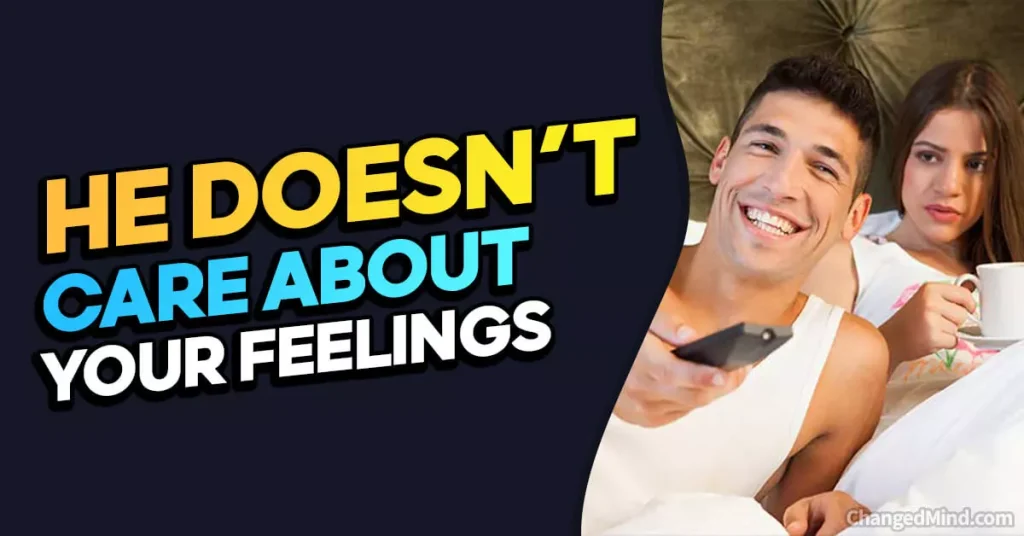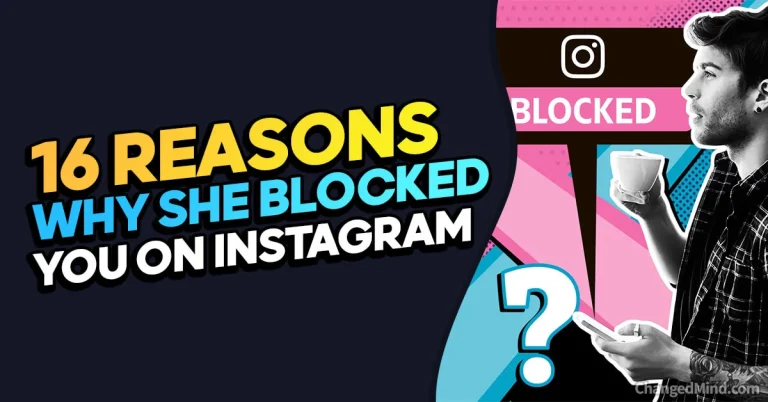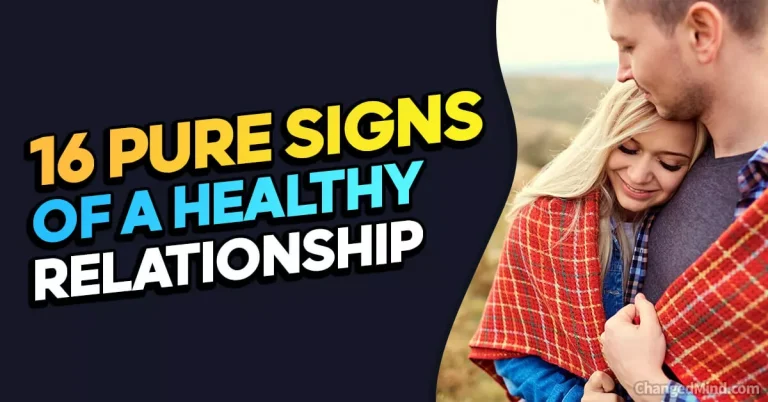Picture this: You pour your heart out, expressing your deepest emotions, only to be met with a shrug and an indifferent “whatever.” Ugh, we’ve all been there, haven’t we? But fear not, my friend, for we’re about to embark on a journey that will equip you with the tools to handle this soul-crushing scenario.
In this article, we’ll explore the treacherous territory of emotional neglect and unveil the secrets to reclaiming your self-worth. But before we unveil the answers, here’s the short answer you’ve been waiting for:
Short answer: If he doesn’t care about your feelings, it’s time to prioritize your emotional well-being and take action. Now, hold tight as we dive into the captivating reasons why and discover the empowering steps you can take to reclaim your happiness.
Key Takeaway:
- Identify signs of not feeling cared for, such as lack of interest, agenda differences, and lack of response to requests for changes in behavior.
- Pay attention to whether someone is trying to understand you, even in difficult conversations.
- Empathy, or lack thereof, can have a significant impact on relationships and can be a sign of mental health issues.
- Understand that behavior can often be linked to personal history and stressors.
- Remember to prioritize taking care of yourself in a one-way relationship.
Signs that someone doesn’t care about your feelings

Signs that your feelings are not a priority to someone can be difficult to recognize but they should not be ignored. Here are some indications that someone doesn’t care about your emotional wellbeing:
- They dismiss or belittle your feelings, opinions, and needs, making you feel invalidated and unimportant.
- They fail to listen actively or empathetically and prioritize their own feelings and interests over yours, disregarding your emotional state.
- They use hurtful language and behaviors such as yelling, insulting, and mocking, ignoring the harm they cause to your feelings.
- They refuse to take responsibility for their actions and apologize when they hurt you, showing a lack of accountability and respect.
In addition to these signs, pay attention to subtle cues such as their body language, tone of voice, and facial expressions to evaluate their level of concern and empathy. Remember that emotional neglect can have serious consequences for your mental health and well-being.
Pro Tip: If someone repeatedly shows little regard for your feelings, it may be time to reassess the relationship and consider setting boundaries or seeking support from a trusted friend or mental health professional.
How to recognize if someone is trying to understand you
Recognizing if someone is empathetic towards you can be challenging, but a few cues can help. Firstly, observe if the person actively listens to you and provides thoughtful responses. They may also ask follow-up questions to clarify your points. Furthermore, they may try to put themselves in your shoes and understand your perspective. To confirm this, notice if they repeat your ideas to ensure they understood you correctly. Trust your intuition and watch for nonverbal signals like eye contact and nodding. These behaviors can indicate that the person is invested in understanding you.
Empathy and its impact on relationships
Empathy plays a crucial role in the success of any relationship, influencing how we perceive, interact, and communicate with others. Empathy and its impact on relationships is often seen in how a person relates to their partner and it’s an important factor in building a meaningful and long-lasting connection. Without empathy, people exchange ideas without truly listening, causing them to be misunderstood, and ultimately drifting apart. Understanding and acknowledging emotions strengthens empathy, which can lead to emotional connection and increased intimacy in relationships. Demonstrating empathy towards your partner can help you both feel heard, validated, and loved. It is essential not to disregard the importance of empathetic communication in relationships as it can make or break them.
Understanding the reasons behind someone’s behavior
Understanding the factors that influence someone’s actions can be a daunting task. It’s essential to analyze the root cause of a person’s behavior to understand their motivations. Many underlying issues may be causing someone to act in a certain way. For instance, personal relationships, past experiences, and upbringing can greatly impact a person’s behavior. Knowing these factors can help understand the reasons behind someone’s behavior, and ultimately improve communication and relationships. However, it is crucial to approach this analysis with empathy and patience.
Conclusion: Taking care of yourself in a one-way relationship.
Taking Responsibility for Your Well-being in a One-sided Relationship
It is important to prioritize your emotional health in unbalanced relationships. By acknowledging your feelings and setting boundaries, you can start taking responsibility for your well-being. Communicating your needs clearly and standing up for yourself is essential for preserving your self-worth.
In addition, it is important to distinguish between what you can and cannot control. Accept that you cannot force someone to care about your feelings, but you can take steps to protect yourself. Understanding your role in the relationship and being realistic about your expectations can help you make informed decisions.
Finally, consider seeking support from friends, family, or a therapist. Surrounding yourself with people who validate your emotions and offer healthy perspectives can make it easier to navigate one-sided relationships. Ultimately, taking care of yourself is crucial for maintaining a sense of agency and empowerment.
Some Facts About What You Should Do If He Doesn’t Care About Your Feelings:
- ✅ Not valuing your feelings may be a sign of low empathy, which can be a symptom of certain mental health conditions like narcissistic personality. (Source: Melissa Zawisza, licensed clinical social worker in Arlington, Texas)
- ✅ If you don’t feel valued or respected in a relationship, you may feel like you have to walk on eggshells around the other person and generally don’t feel seen or heard. (Source: Jenny Walters, licensed therapist in Los Angeles)
- ✅ Other signs that someone doesn’t care about you may include failing to show any interest or curiosity in you or your life, having a different agenda for the relationship than you do, and ignoring the impact of their actions on you. (Source: Cheri Timko, couple’s relationship coach in Fairmont, West Virginia)
- ✅ If someone cuts you off emotionally, speaks to you in a condescending or devaluing way, or shuts you down while you’re speaking, it may be a sign of low empathy and a lack of caring for your feelings. (Source: Melissa Zawisza, licensed clinical social worker in Arlington, Texas)
- ✅ It’s important to observe how the person responds and interacts with others. If they treat everyone this way, it may not be personal. But if you’re the only person they treat this way, it may be personal, and it doesn’t mean you did something wrong. (Source: Melissa Zawisza, licensed clinical social worker in Arlington, Texas)
FAQs about What You Should Do If He Doesn’T Care About Your Feelings
What are some signs that someone doesn’t care about your feelings in a relationship?
Some signs that someone may not value you or your relationship include not asking you about your feelings, life, or what’s important to you, not responding to your requests to change their behavior, having a different agenda for the relationship than you do, and ignoring the impact of their actions on you.
How can you tell if someone lacks empathy?
Signs that someone may lack empathy include cutting you off emotionally, walking away and refusing to discuss your feelings, even after they’ve calmed down, speaking to you in a condescending, devaluing, or disparaging way, and shutting you down while you’re speaking or cutting you off from speaking.
What should I do if my partner doesn’t care about my feelings?
If your partner doesn’t care about your feelings, it’s important to communicate your emotional needs and try to work on the issues together. If the communication breakdown persists and your emotional well-being is at stake, it may be necessary to re-evaluate the relationship and consider seeking emotional support and validation elsewhere.
How do I deal with a neglectful or indifferent partner?
You can deal with a neglectful or indifferent partner by being assertive and expressing your emotional needs, setting boundaries to protect your emotional well-being, and seeking emotional support and validation from other sources. It’s important to recognize that you deserve to be with someone who cares about your feelings and makes an effort to be emotionally available.
What are some coping strategies for dealing with emotional neglect in a relationship?
Some coping strategies for dealing with emotional neglect in a relationship include practicing self-care, seeking emotional support from friends, family, or a therapist, engaging in activities that bring you joy and fulfillment, being assertive about your emotional needs, and working on personal growth and emotional vulnerability.
How can I improve my emotional intelligence and build stronger connections in relationships?
You can improve your emotional intelligence and build stronger connections in relationships by practicing active listening, seeking to understand and validate others’ feelings, expressing your own feelings in a clear and honest way, being assertive about your emotional needs, and working on developing empathy and self-awareness.







